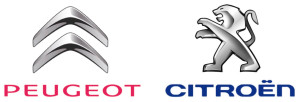Arab News
Although French car manufacturer PSA/Peugeot-Citroen denies plans that it is negotiating for a low-cost assembly plant in Morocco, market sources confirm that “serious discussions are going on between Moroccan officials and several carmakers including PSA.”
It makes sense for PSA to produce cars in Morocco. Its French rival Renault has a factory on the Moroccan coast in Tangier. There is also talk of a research and development center in Morocco to help the company serve Middle East and North Africa markets more effectively and add more local flavor to their cars.
PSA Chief Financial Officer Jean-Baptiste de Chatillon said something revealing earlier this year. He confirmed that the company “Can’t continue to sell cars in Turkey or North Africa that have been made in France or the euro zone.” CEO Carlos Tavaris has pledged to reduce costs and return the automaker to profit. He plans to do that by outsourcing and assembling cars in low-cost locations like Morocco.
Market sources know that this approach may be the only way out for PSA which has been dependent on Europe and a mid-market segment that suffered most during the current six-year recession in both demand and pricing.
While, Renault found its salvation in the Dacia low-cost production line, the Peugeot 301 and Citroen C-Elysee are the closest models the company currently has to budget offerings. Both cars are built in Spain on the stripped-down architectures of pricier models.
The issue of moving production out the EU, and France specifically, remains a sensitive issue to French unions and government, especially with 10 percent unemployment figure. The company plants in Rennes and Poissy remain vulnerable to further cuts in the future. That explains the company’s reluctance to comment on the Moroccan plans publicly.
It may be worthwhile for the GCC to start formulating plans to offer a scheme of incentives to carmakers to entice them to set-up plants in the region. The region is host to some of the world largest facilities in aluminum, petrochemicals and other industrial and energy products. It also has a vibrant demand for about a million cars every year. It seems only natural that the next step should be the setting up of an assembly plant to serve the regional markets.
——————-
Adel Murad is a senior motoring and business journalist, based in London.








